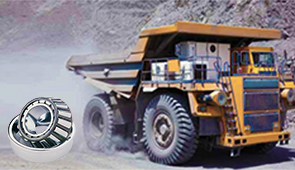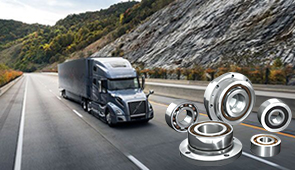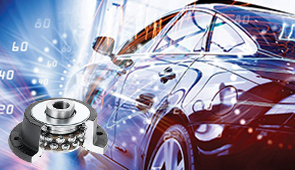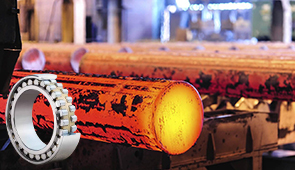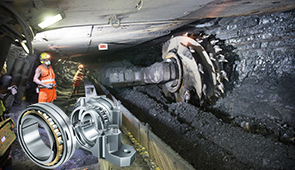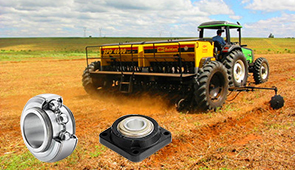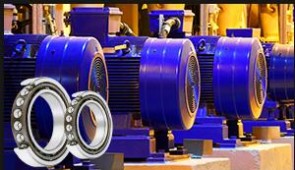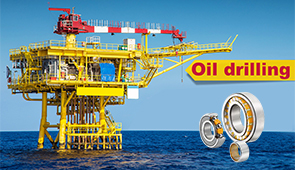Why Do Bearings Need To Be Lubricated?
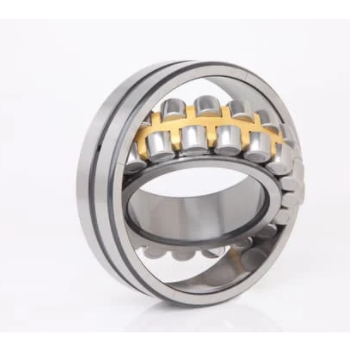
Bearings are one of those things that we often take for granted. They’re in our cars, our bikes, our skateboards, and countless other devices we use every day. But have you ever stopped to think about why bearings need to be lubricated? In this blog post, we’ll explore the answer to that question. We’ll also dispel some myths about bearing lubrication and give you some tips on how to keep your bearings running smoothly.
Bearing lubrication is one of the most important aspects of maintaining your equipment. It helps reduce friction, wear and tear, and overall efficiency. This means that bearings need to be lubricated on a regular basis to keep them running smoothly. But why do bearings need lubrication in the first place? In this blog post, we will explore the different types of bearings and how they work. We will also discuss the different types of lubricants and their role in bearing lubrication. Finally, we will talk about how to lubricate bearings properly and prevent problems from arising.
How do Bearings Work?
Bearings are designed to keep moving parts in a machine from rubbing together. The way they work is by using small metal balls or rollers that sit between the moving parts and spin around. This spinning reduces friction and helps the parts move smoothly.
In order for bearings to work properly, they need to be lubricated. Lubrication helps reduce wear on the bearing surfaces and prevents metal-to-metal contact. It also helps keep the bearings cooler, which extends their life.
Bearing systems require lubrication to operate effectively. This is because the moving parts of the bearing system (the Bearings) rub against each other with enough force to create friction. Without lubrication, this friction can cause the bearings to wear out prematurely and fail.
The most common type of bearing used in vehicles is a ball bearing. Ball bearings use oil as their main lubricant. The oil circulates through the ball bearings and dampens the friction between the balls and the race.
Most other types of bearings also use some form of oil as their main lubricant. So why do they need it?
Bearings work best when they are kept relatively clean. Dirty bearings will distribute dirt more evenly throughout the Bearing, resulting in increased friction and wear. Lubricating oils help to keep bearings clean by dispersing dirt and debris before they have a chance to cause damage.
Lubrication is important for bearings because it prevents metal-to-metal contact between the moving parts of the bearing. This contact can cause friction and heat, which can damage the bearing. Lubrication also keeps the bearing surfaces clean and free from debris, so that the bearing can move smoothly.
Bearings need to be lubricated regularly in order to keep them working properly. The amount of lubrication required depends on the type of bearing, the speed at which it is operating, and the temperature of the environment. Most bearings need to be relubricated every few months or years, but some may need to be relubricated more frequently.
Different Types of Lubricants
Different types of lubricants serve different purposes. Some are designed to protect against wear, while others are designed to reduce friction. The most common types of lubricants are oils, greases, and solid film lubricants.
Oils are the most common type of lubricant. They can be made from petroleum or synthetic materials. Oils provide a thin film of protection against wear and reduce friction by reducing the contact area between two surfaces.
Greases are another type of lubricant that is used to protect against wear and reduce friction. Greases consist of a base oil and a thickener. The base oil provides the lubricating properties, while the thickener keeps the grease from running or dripping off surfaces. Greases are typically used in applications where high temperatures or heavy loads would cause an oil to break down.
Solid film lubricants are a type of lubricant that forms a dry film on surfaces. This film provides protection against wear and reduces friction by providing a smooth surface for two objects to slide against each other. Solid film lubricants are typically used in high-temperature or high-load applications where other lubricants would break down.
When it comes to keeping your bearings in good working order, regular lubrication is key. Lubricating your bearings helps to reduce friction and wear, and can also help to prevent rust and corrosion.
There are a few different ways that you can lubricate your bearings, but the most common method is to use grease. Grease is a thick lubricant that can provide long-lasting protection for your bearings. You will need to apply grease to your bearings on a regular basis, depending on how often they are used.
Another option for lubricating your bearings is to use oil. Oil is a thinner lubricant than grease, and it will need to be applied more frequently. However, oil can help to keep your bearings running smoothly and quietly.
No matter which lubricant you choose, it’s important to make sure that you don’t over-lubricate your bearings. Too much lubricant can actually cause damage to your bearings, so it’s important to find the right balance.
When to Replace Bearings
There are several factors that can affect how often bearings need to be replaced. The most important factor is the environment in which the bearings are used. If the bearings are used in a dusty or dirty environment, they will need to be replaced more frequently than if they are used in a clean environment. Another factor that can affect bearing replacement is the amount of use the bearings get. Bearings that are used more frequently will need to be replaced more often than those that are used less often.
If bearings are not properly lubricated, they will wear out faster and will need to be replaced more frequently. Bearings should be inspected regularly for wear and tear and should be replaced when they start to show signs of wear. Depending on the severity of the wear, bearings may only need to be replaced every few years or may need to be replaced annually.
Conclusion
Bearings need to be lubricated for a number of reasons. First, it helps to protect the bearings from corrosion and wear. Second, it reduces friction between the moving parts of the bearing, which makes it run more smoothly and with less noise. Third, it helps to dissipate heat generated by the friction of the moving parts. All of these benefits make lubricating your bearings an important part of maintaining them in good condition.










